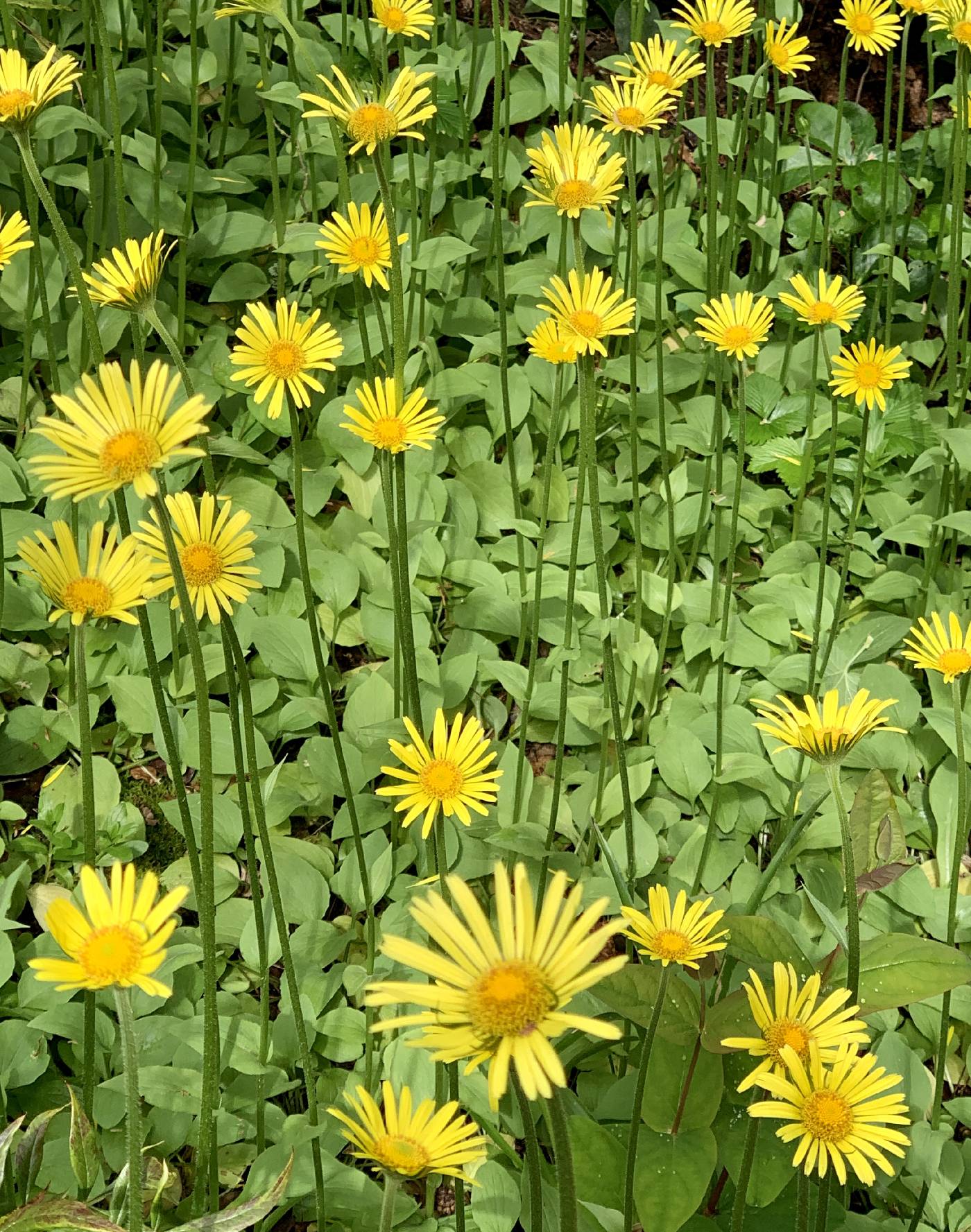Doronicum
|
Family: Asteraceae |
Perennials, 10-60(-90)[-150+] cm (rhizomes sericeous at nodes [glabrous or glabrate]). Stems usually 1, erect. Leaves basal and cauline; alternate; petiolate (petiole bases sometimes dilated, clasping) or sessile; blades palmati-pinnately or pinnately nerved, elliptic, lanceolate, ovate-orbiculate, or ovate [oblong, pandurate, spatulate], margins entire or crenate to denticulate, faces glabrous or arachnose to pilose, sometimes glandular-pubescent (especially along veins). Heads radiate, borne singly or in corymbiform arrays (peduncles often glandular-pubescent). Calyculi 0. Involucres campanulate to hemispheric or broader, 22-40 mm. Phyllaries persistent, 21-30+ in 2-3+ series, erect to spreading, distinct or nearly so, lanceolate to lance-linear or subulate, equal to subequal, margins seldom scarious (often ciliate). Receptacles convex to hemispheric, smooth or foveolate (pilose), epaleate. Ray florets [13-]21-40+ (more in horticultural doubles), pistillate, fertile; corollas yellow. Disc florets [50-]100-250+, bisexual, fertile; corollas yellow, tubes shorter than to equaling funnelform throats, lobes 5, erect or recurved, lance-deltate to lance-linear (lengths to 5 times widths); style branches: stigmatic areas continuous, apices rounded to truncate. Cypselae flattened, broadly obovate, 5- or 10-ribbed, glabrous or hairy; pappi persistent, usually of 40-60, white or stramineous, barbellulate bristles (in 1-2 series), sometimes 0 in ray florets (e.g., D. pardalianches). x = 30. The three doronicums in the flora are seldom encountered outside cultivation.
|

